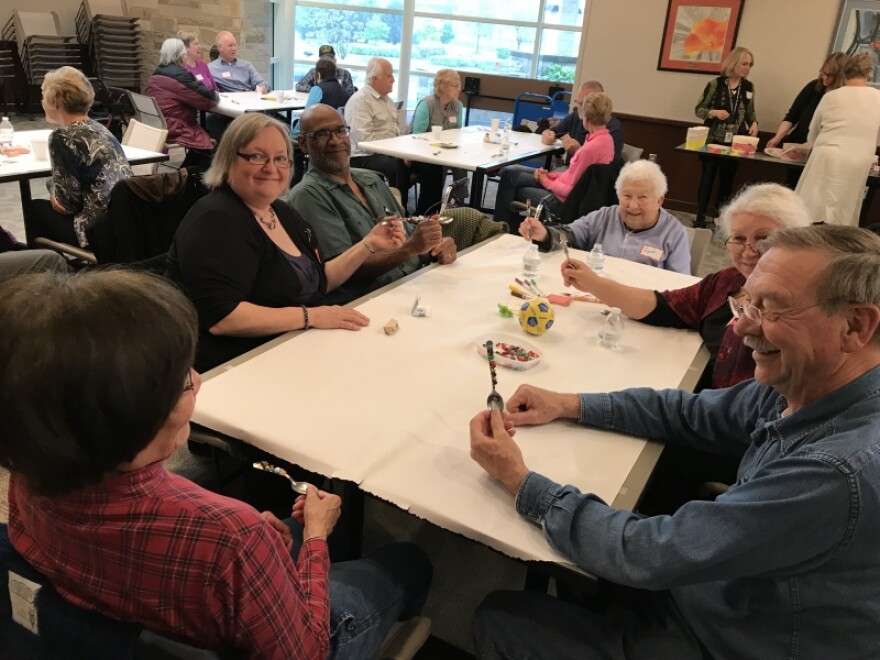Around 5.7 million Americans live with Alzheimer’s or other forms of dementia, and that number is expected to skyrocket in the next 30 years. Dementia can be very isolating, both for patients and for their caregivers. In addition to memory loss, people can experience trouble communicating, poor judgment, and personality changes.
But one organization is trying to make those dealing with dementia a little less isolated. The Library Memory Projectis a partnership between public libraries in Waukesha, Milwaukee and Dodge Counties. Its programs target both those affected by memory loss and their caregivers to come together and have social interactions with others going through a similar experience.
Each month, a library hosts a Memory Café as a fun social opportunity in a safe, supportive, and judgment-free space for those experiencing early stage dementia and for their families, friends, or care partners. Thursday morning, the Bridges Library System launches its fifth Library Memory Project at the Mukwonago Community Library.
"One of the big reasons the Memory Cafés even began was because 70 percent of individuals who have Alzheimer's disease or other forms of dementia live in the community. We often think of these folks as living in care facilities but a majority of them live in the community," notes Jennifer Harders, outreach coordinator for the Alzheimer’s Association of Southeast Wisconsin.
According to Harders, people are told by the doctor's office that they have Alzheimer's disease or other form of dementia, and then told to come back in six months to a year. This only increases the isolation that someone can face when dealing with the disease, especially when the outreach isn't made to connect them with resources or a supportive community.
"[Libraries are] a perfect fit for people who are experiencing memory loss. It's a place where they feel welcome and it's a comfortable place for them to return to." - Angela Meyers, Bridges Library System
Libraries already have a multitude of programs that serve people of all ages notes Angela Meyers, coordinator of Youth and Inclusive services for the Bridges Library System. "That's where [libraries are] a perfect fit for people who are experiencing memory loss. It's a place where they feel welcome and it's a comfortable place for them to return to," she explains. "They know when they go that they're going to be welcome, they're going to have a good time, and they're going to maintain those connections."
In addition to Memory Cafés, the Library Memory Project also offers educational programs on memory loss and brain health. Each branch involved works with the Alzheimer's Association and the Aging and Disability Resource Center to receive dementia-friendly training for library staff and volunteers. This includes understanding the difference between Alzheimer's and dementia, recognizing someone who is struggling with memory loss, and how to communicate effectively with the population.
"Honestly, it’s been a pretty easy process," says Harders. "Librarians, I find, already are very knowledgeable about how to communicate with others and very intuitive when it comes to working with different populations."
She also says that the positive impact on participants' well-being and outlook is invaluable.
"We've seen that this is a new family for these folks and it's priceless for them," says Harders.







